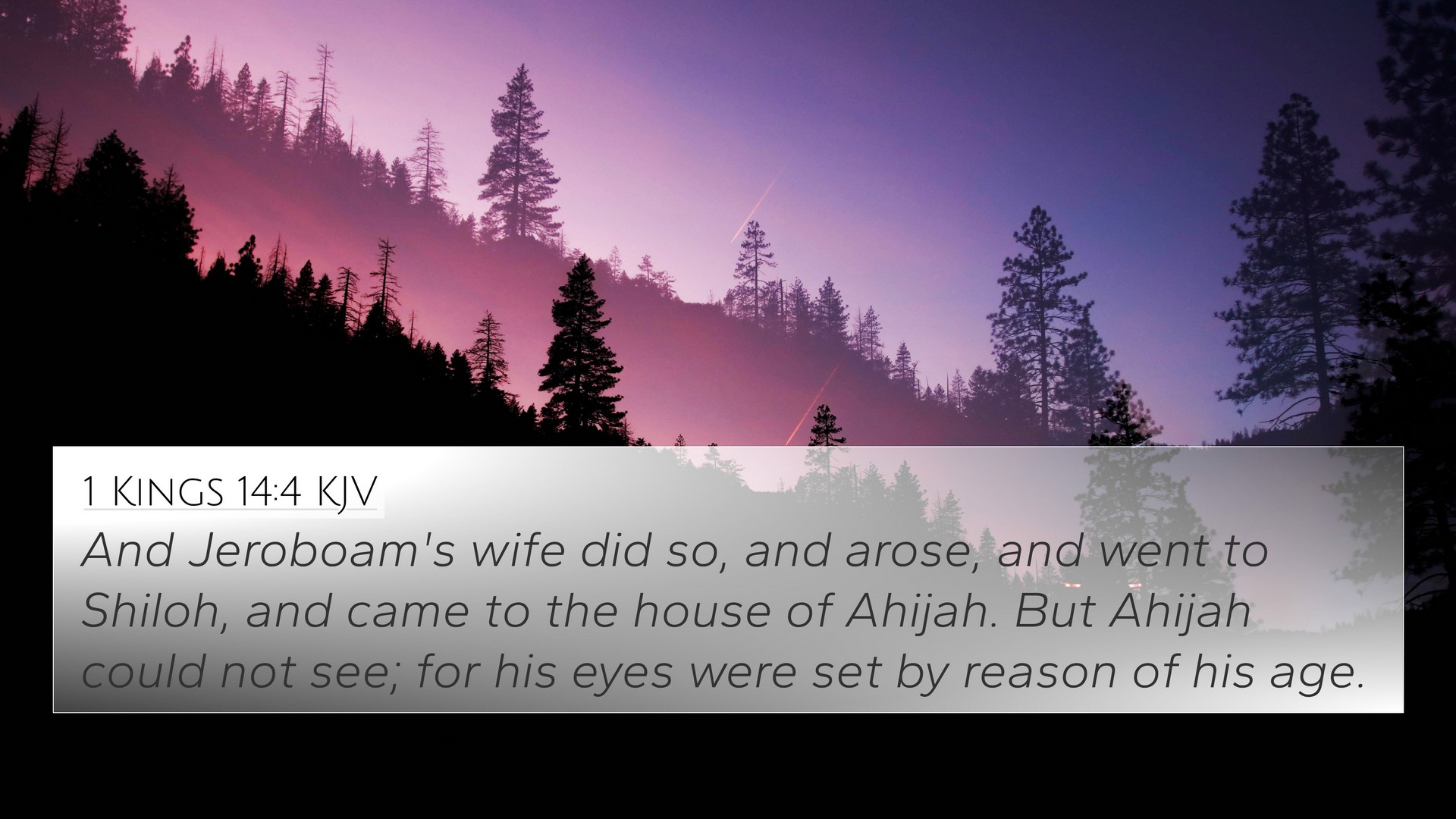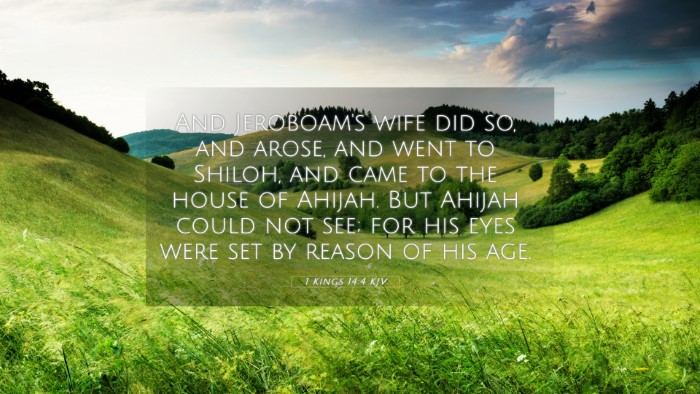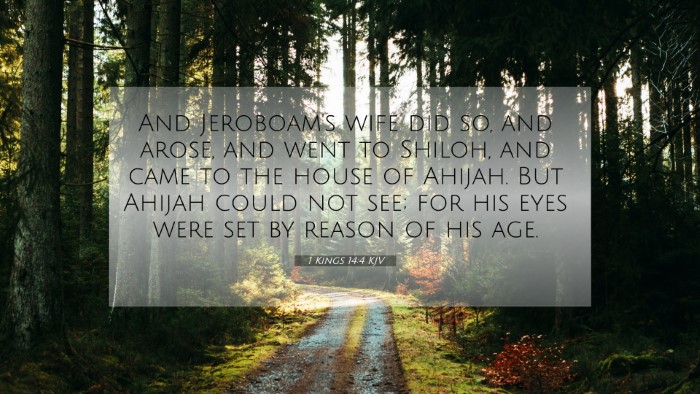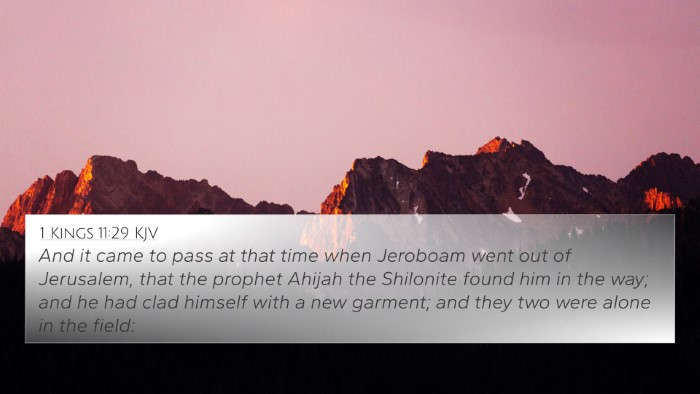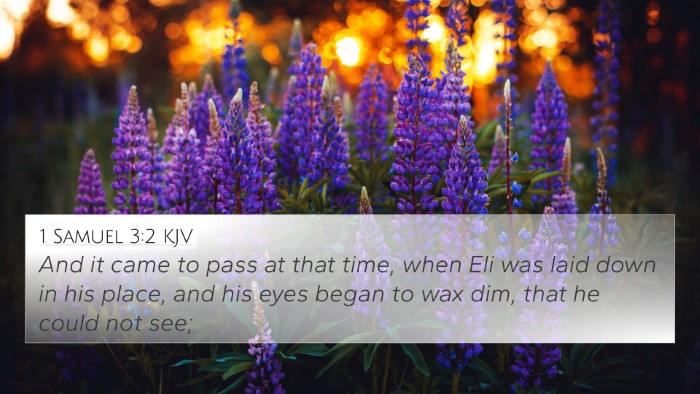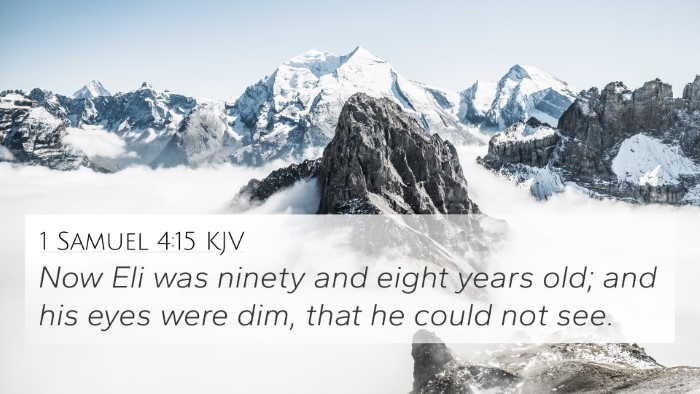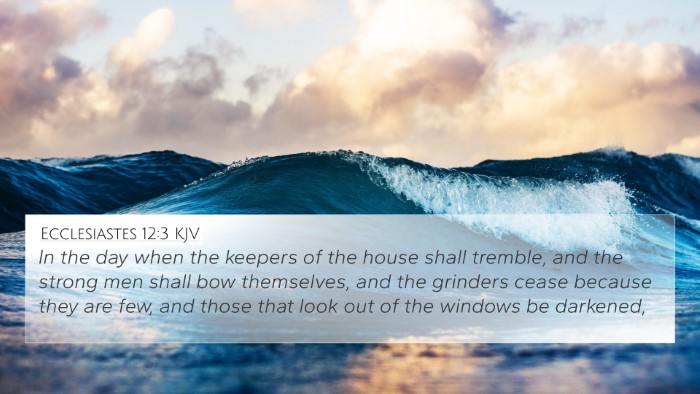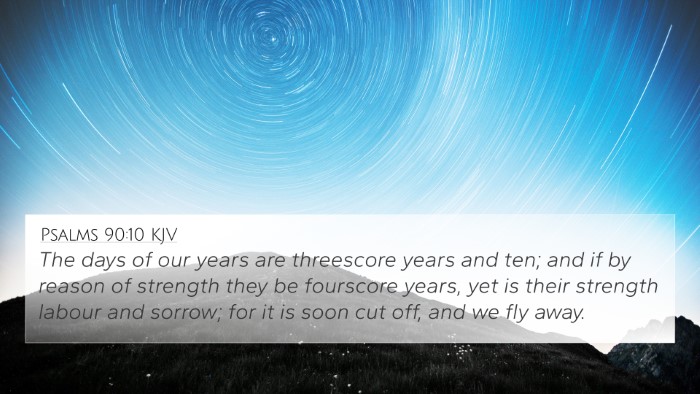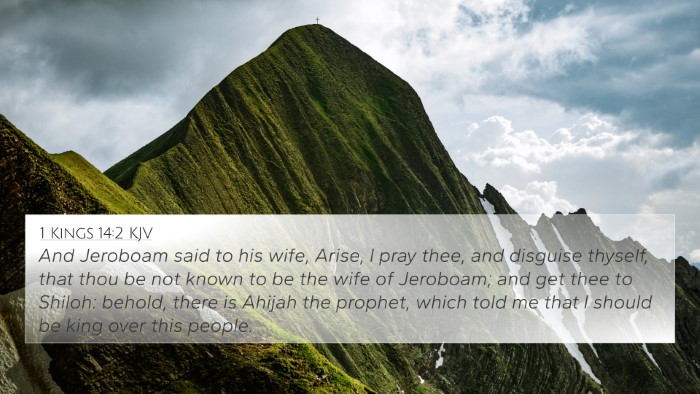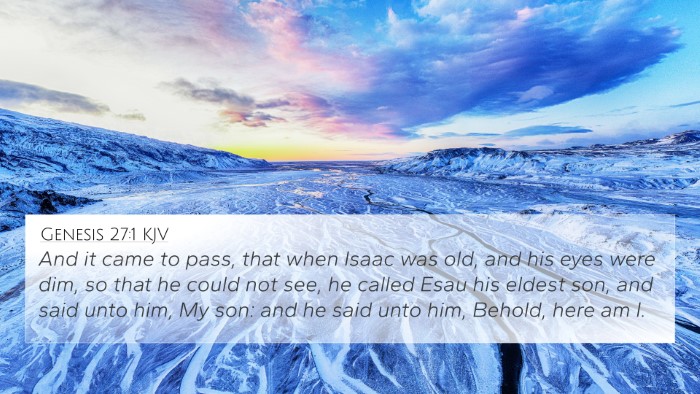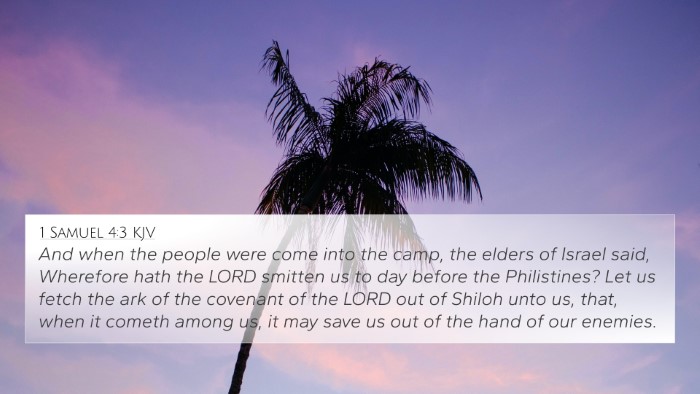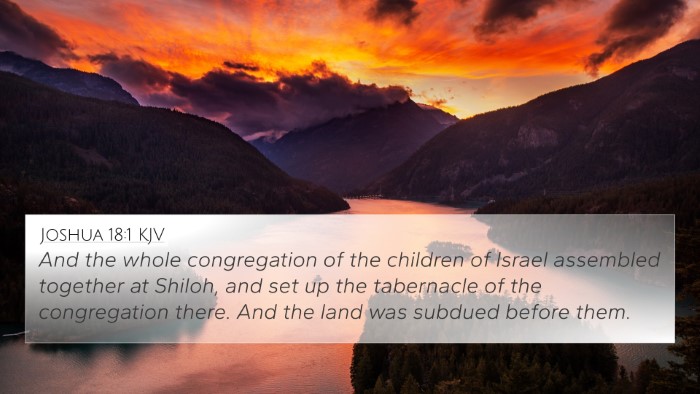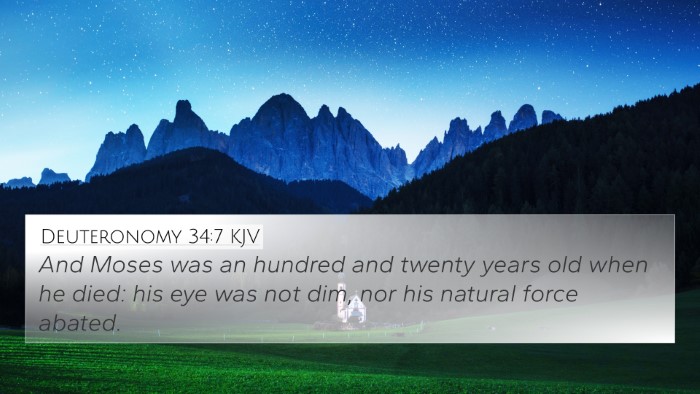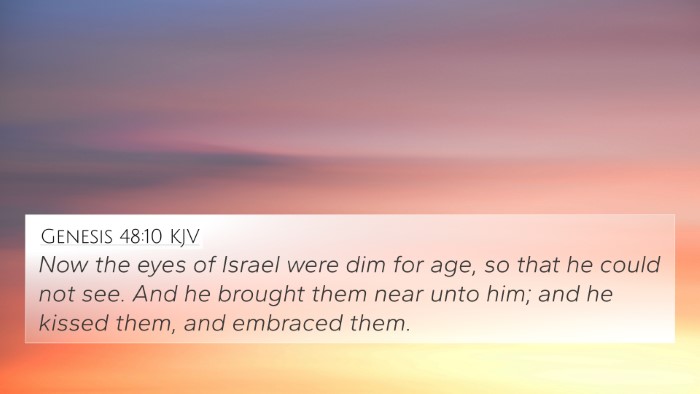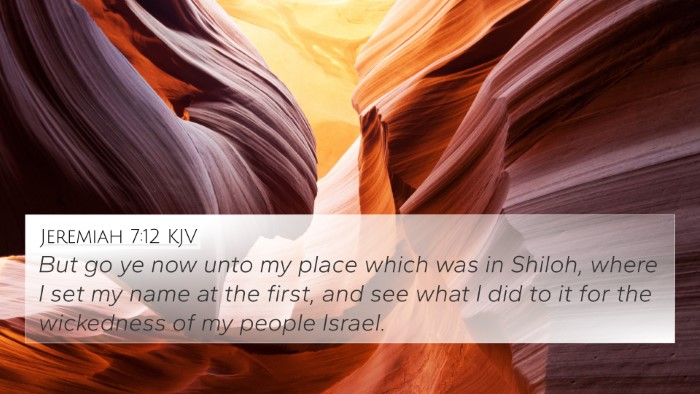Understanding 1 Kings 14:4
Verse: 1 Kings 14:4 - "And Jeroboam's wife arose and went to Shiloh, and came to the house of Ahijah. But Ahijah could not see; for his eyes were set, by reason of his age.”
Verse Meaning and Interpretation
This passage introduces Jeroboam's wife as she seeks counsel from the prophet Ahijah in Shiloh. The context reveals her concern for their ill son, and it highlights several critical themes in the narrative of Jeroboam’s reign.
Thematic Insights
- Desperation in Times of Crisis: Jeroboam's wife embodies a mother's desperation, leading her to consult a prophet despite the precarious political climate.
- Divine Revelation: The inability of Ahijah to see serves as a backdrop to the divine insight he is about to provide; it emphasizes that God's revelation transcends human limitations.
- Symbol of Judgment: The very act of seeking a prophet suggests a recognition of God's power and judgment in their lives, a theme well-explored in prophetic literature.
Connections to Related Bible Verses
This verse resonates with several other biblical texts that echo themes of seeking God, prophetic guidance, and familial concern:
- 1 Samuel 28:6: Saul seeks guidance from a medium when God is silent, illustrating desperation in seeking divine intervention.
- 2 Kings 1:2-3: Ahaziah sends messengers to inquire of Baal-zebub, the god of Ekron, showing a lack of faith in Yahweh, similar to Jeroboam's reliance on politics rather than God.
- Proverbs 1:24-27: Wisdom calls out; the refusal to heed prophetic warning is condemned, paralleling Jeroboam's rejection of God's ways.
- Isaiah 31:1: “Woe to those who go down to Egypt for help,” reflects the theme of seeking earthly solutions rather than divine counsel.
- Matthew 7:7: Encourages believers to seek and they shall find, akin to the pursuit undertaken by Jeroboam's wife.
- Hebrews 11:6: Highlights the necessity of faith in seeking God, relevant to Jeroboam’s unstable fidelity to Yahweh.
- James 1:5: Urges believers to ask God for wisdom, connecting the act of seeking divine guidance with the actions of Jeroboam's wife.
Comparative Biblical Analysis
This verse serves as a crucial pivot point in exploring themes of leadership, faith crises, and consequences of choices. By comparing Jeroboam’s reliance on the prophet Ahijah with other Old Testament leaders, such as Saul and David, one can glean much about the nature of faith and divine communication in Israel's history.
Inter-Biblical Dialogue
The narrative invites reflections on how prophetic voices function across scripture. The dialogue between the Old and New Testaments becomes apparent when considering how God communicates with His people directly through prophets and indirectly through circumstances:
- Luke 24:44: Jesus notes that all things must be fulfilled which were written in the law, the prophets, and the psalms, linking Old Testament prophecies to New Testament fulfillment.
- John 16:13: Jesus promises the Holy Spirit will guide into all truth, signifying a continuation of God’s guidance that began with prophets like Ahijah.
Conclusion
1 Kings 14:4 exemplifies a moment of personal crisis interwoven with national consequences, revealing how individual actions can reflect a larger narrative of faith and divine judgment. The connections drawn and insights gained through cross-referencing this verse enable a deeper understanding of biblical themes, encouraging readers to explore the complexities of faith, prophecy, and God's governance over His people.
